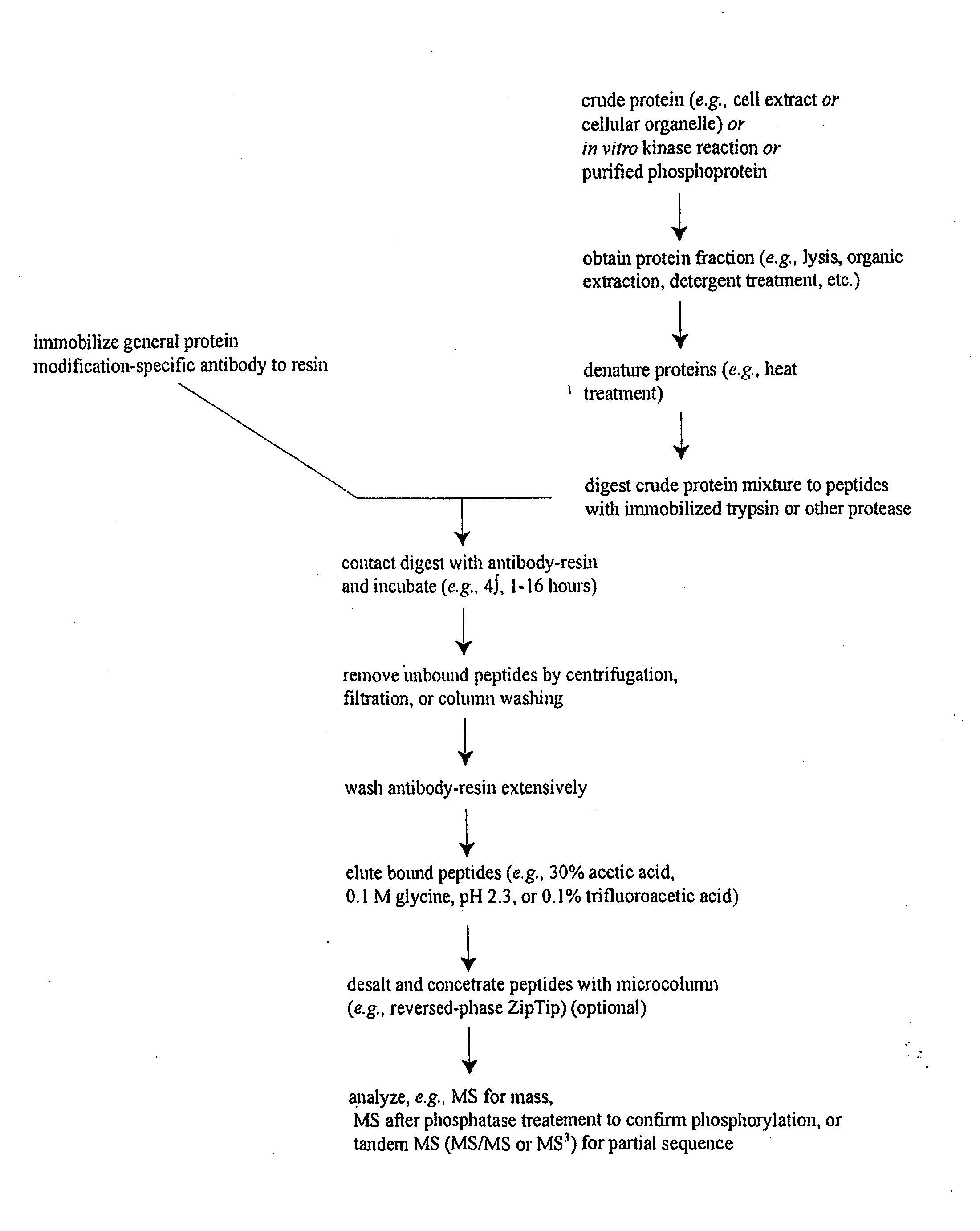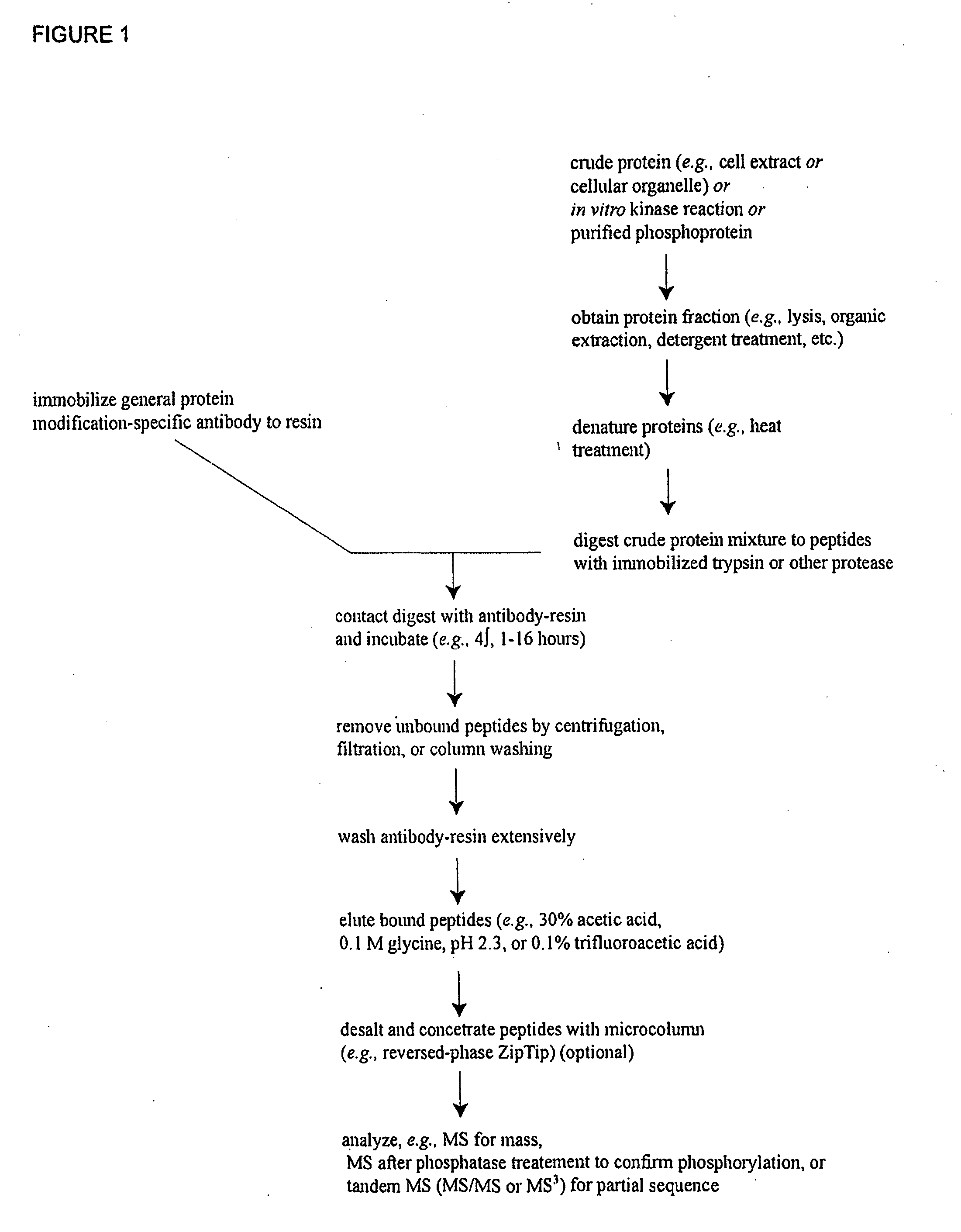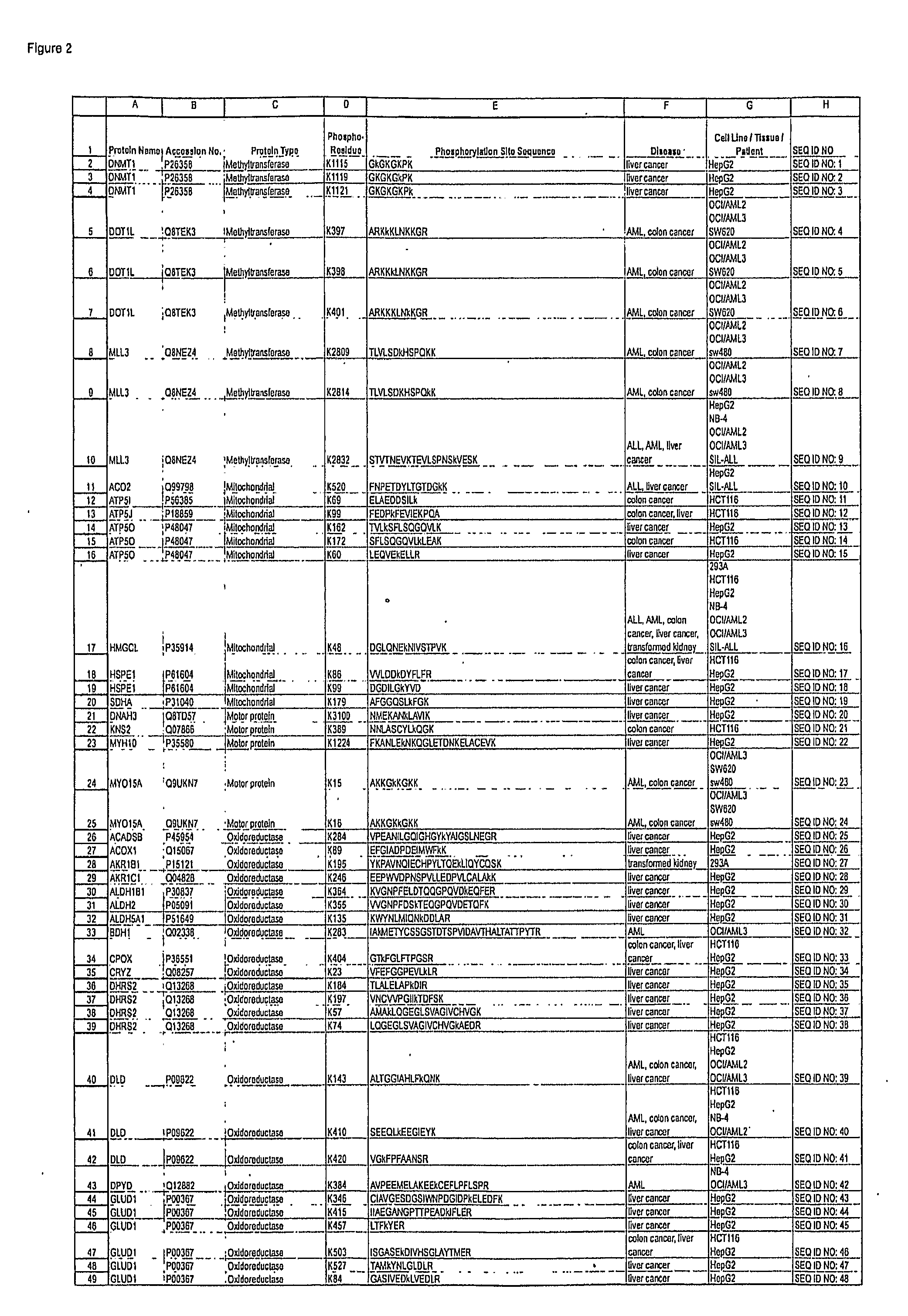Reagens for the detection of protein acetylation signaling pathways
a technology of protein acetylation and signaling pathway, which is applied in the field of antibodies and peptide reagents for the detection of protein acetylation, and to protein acetylation in cancer, can solve the problems of cell death, affecting protein stability, and not yet well understood
- Summary
- Abstract
- Description
- Claims
- Application Information
AI Technical Summary
Benefits of technology
Problems solved by technology
Method used
Image
Examples
example 1
Isolation of Acetyl-lysine Containing Peptides from Extracts of Human Cancer Cell Lines and Identification of Novel Acetylation Sites
[0117]In order to discover previously unknown protein acetylation signal transduction protein acetylation sites, IAP isolation techniques were employed to identify acetyl-lysine containing peptides in cell extracts from the following cell lines: OCI / AML2, 293A, HepG2, HCT116, NB-4, OCI / AML3, SW620, sw480, HeLa and SIL-ALL. OCI / AMLL2, OCI / AML3, NB-4, and SIL-ALL cell lines were grown in RPMI1640 medium with 10% FBS. 293A, HepG2, and HeLa cells were grown in MEM medium with 10% FBS. HCT116, SW620, and sw480 cells were grown in DMEM medium with 10% FBS. Cells were either untreated or treated with HDAC inhibitors TSA or Nicotinamide, were harvested when they were about 60-80% confluent. About 200 million cells were harvested in 10 mL lysis buffer per 2×108 cells (20 mM HEPES pH 8.0, 9 M urea, 1 mM sodium vanadate, supplemented with 2.5 mM sodium pyro-phosp...
example 2
Production of Acetyl-specific Polyclonal Antibodies for the Detection of Protein Acetylation Signaling Protein Acetylation
[0128]Polyclonal antibodies that specifically bind a protein acetylation signal transduction protein only when acetylated at the respective acetylation site disclosed herein (see Table 1 / FIG. 2) are produced according to standard methods by first constructing a synthetic peptide antigen comprising the acetylation site sequence and then immunizing an animal to raise antibodies against the antigen, as further described below. Production of exemplary polyclonal antibodies is provided below.
A. NPM1 (lysine 150).
[0129]A 13 amino acid acetyl-peptide antigen, SAPGGGSk*VPQKK (where k*=acetyl-lysine) that corresponds to the sequence encompassing the lysine 150 acetylation site in human NPM1 RNA binding protein (see Row 164 of Table 1; SEQ ID NO: 163), plus cysteine on the C-terminal for coupling, is constructed according to standard synthesis techniques using, e.g., a Rai...
example 3
Production of Acetyl-specific Monoclonal Antibodies for the Detection of Protein Acetylation Signaling
[0136]Monoclonal antibodies that specifically bind a protein acetylation signal transduction protein only when acetylated at the respective acetylation site disclosed herein (see Table 1 / FIG. 2) are produced according to standard methods by first constructing a synthetic peptide antigen comprising the acetylation site sequence and then immunizing an animal to raise antibodies against the antigen, and harvesting spleen cells from such animals to produce fusion hybridomas, as further described below. Production of exemplary monoclonal antibodies is provided below.
A. MYST3 (Lysine 415).
[0137]A 19 amino acid acetyl-peptide antigen, TKGLIDGLTk*FFTPSPDGR (where k*=acetyl-lysine) that corresponds to the sequence encompassing the lysine 415 acetylation site in human MYST3 Transferase (see Row 332 of Table 1 (SEQ ID NO: 331)), plus cysteine on the C-terminal for coupling, is constructed acco...
PUM
 Login to View More
Login to View More Abstract
Description
Claims
Application Information
 Login to View More
Login to View More - Generate Ideas
- Intellectual Property
- Life Sciences
- Materials
- Tech Scout
- Unparalleled Data Quality
- Higher Quality Content
- 60% Fewer Hallucinations
Browse by: Latest US Patents, China's latest patents, Technical Efficacy Thesaurus, Application Domain, Technology Topic, Popular Technical Reports.
© 2025 PatSnap. All rights reserved.Legal|Privacy policy|Modern Slavery Act Transparency Statement|Sitemap|About US| Contact US: help@patsnap.com



